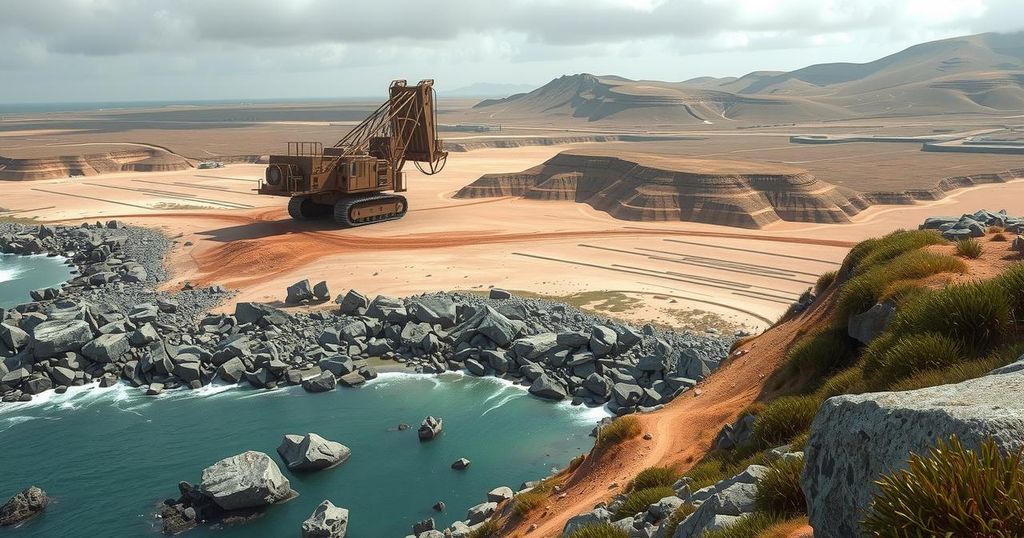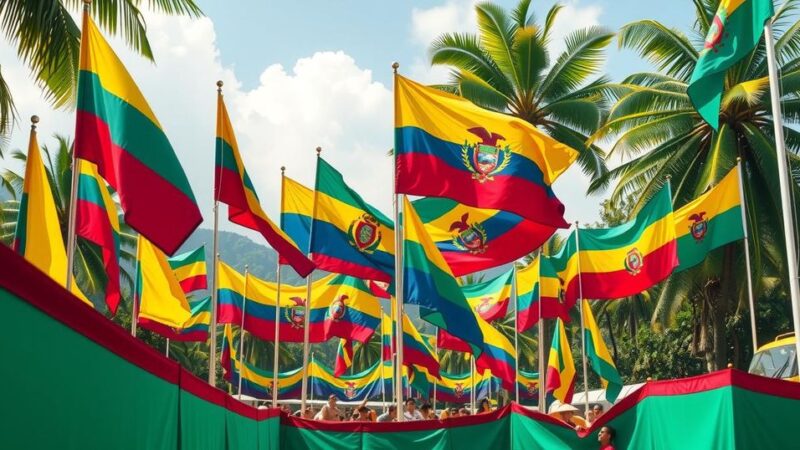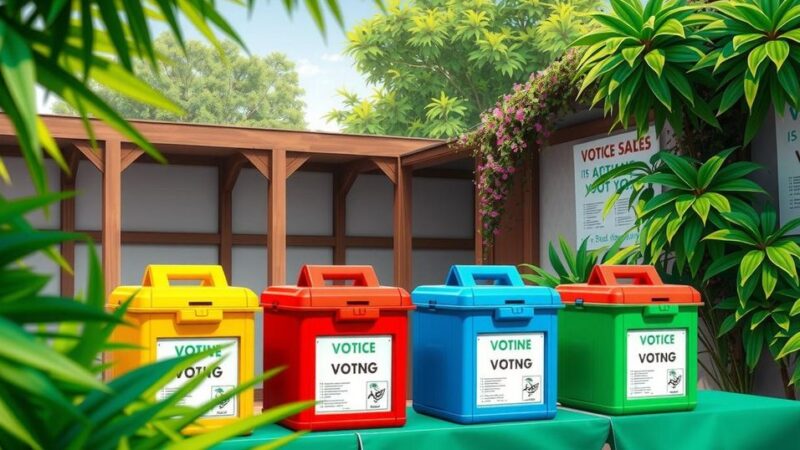The world’s largest mining dredger in Senegal is causing significant ecological damage and displacing local farmers from their land. Although Eramet, the operating company, claims to follow regulations and compensate affected residents, many locals allege that the mining is destroying their livelihoods. Calls for increased oversight and suspensions of mining operations have intensified, particularly with the new Senegalese president’s comments on the need for transparency and accountability in extractive industries.
The world’s largest mining dredger has dramatically altered Senegal’s coastal landscape, creating an enormous scar as it extracts zircon. This mineral is essential for ceramics and construction. This extensive operation is taking place in Lompoul, a picturesque tourist destination known for its stunning beaches and fertile land, which has long supported local agriculture.
Over the past decade, the French mining group Eramet has operated this dredger, displacing thousands of farmers and their families. Although Eramet asserts that their practices comply with regulations and that they provide generous compensation, local communities believe that their ecosystem is being jeopardized. The mayor of Diokoul Diawrigne district, Gora Gaye, noted the widespread despair caused by these activities, stating that promises made to locals have gone unfulfilled and economic development has regressed.
As dissent against the mining operation grows, the new President of Senegal, Bassirou Diomaye Faye, has voiced concerns regarding extractive practices that fail to benefit local populations. He has called for increased transparency and oversight to assess social and environmental impacts, reinforcing his commitment to national sovereignty from external influences, particularly those of France.
Eramet began its mining operations in Senegal in 2014 under prior government arrangements. They maintain that their operations are responsible and beneficial to the country, claiming to have paid reasonable compensation to affected residents. However, many local farmers express dissatisfaction with the inadequate compensation based on outdated guidelines.
Critics such as hotelier Sheikh Yves Jacquemain have pointed out that the repercussions of the mining extend beyond physical displacement, with locals reporting significant economic decline and environmental degradation. The untouched fields that once produced a significant portion of Senegal’s fresh vegetables now lay barren due to the mining activities.
Local testimonies highlight the anger and frustration felt by displaced individuals. Omar Keita, a father of three, demands the return of his land to restore his former livelihood. Despite having received new housing from Eramet, he and others feel their quality of life and stability have been sacrificed for mineral extraction.
Eramet’s managing director asserts the company has complied with legal responsibilities and contributes significantly to the local economy. Despite these claims, locals counter that the benefits have not been equitably distributed, as restored land is returned to the Senegalese state instead of directly to the farmers. This has led to demands for a moratorium on mining to assess the full extent of environmental damage.
Ecological damage resulting from mining operations has prompted widespread calls for pausing activities until thorough studies are conducted. Gaye emphasizes the necessity of mindful consideration for the affected communities, leveraging local concerns about water pollution and fertile land degradation against the company’s desire for increased production capacity. Despite the company’s assurances, the situation remains tense as the giant dredger continues its relentless operation in Lompoul.
The mining activities of Eramet along Senegal’s coast have raised significant concerns regarding environmental degradation and local displacement. While the company defends its practices and contributions to the economy, local communities, led by officials like Mayor Gora Gaye, demand accountability and a reevaluation of the impacts of such extraction. The recent involvement of Senegal’s president suggests a growing acknowledgment of these grievances, indicating a potential shift towards more sustainable practices in the future.
Original Source: www.kpvi.com






